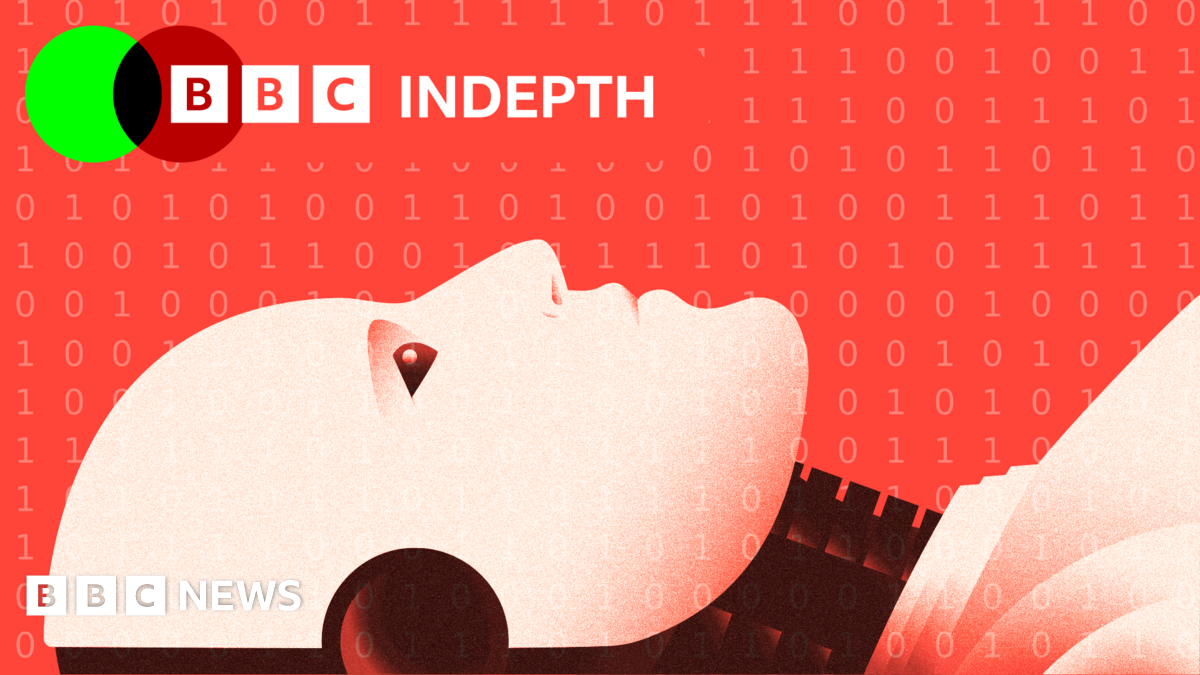Do you think AI is, or could become, conscious?
I think AI might one day emulate consciousness to a high level of accuracy, but that wouldn’t mean it would actually be conscious.
This article mentions a Google engineer who “argued that AI chatbots could feel things and potentially suffer”. But surely in order to “feel things” you would need a nervous system right? When you feel pain from touching something very hot, it’s your nerves that are sending those pain signals to your brain… right?



Consciousness requires contemplation of self. Which requires the ability to contemplate.
Current AIs function as mainly complex algorithms that are run when invoked. They are 100% not conscious any more than a2+b2=c2 is conscious. AI can simulate the words of a conscious being, but they don’t come from any awareness of internal state, but are a result of the prompt (including injected data and instructions).
In the future, I’m sure an AI could be designed that spends time thinking about its own existence, but I’m not sure why anyone would pay for all the compute to think about things not directly requested.
Fish are conscious. Do they contemplate selfhood? So throw that one back into the oven until it’s fully baked.
No, they are sentient. Being conscious is a far more complex behaviour.I guess that this might be wrong, sorryIf they don’t contemplate self then I’d say they aren’t conscious, but I’m not sure how we’d know if they do.
Why can’t complex algorithms be conscious? In fact, ai can be directed to reason about themselves, context can be made to be persistent, and we can measure activation parameters showing that they are doing so.
I’m sort of playing devil’s advocate here, but, “Consciousness requires contemplation of self. Which requires the ability to contemplate.” Is subjective, and nearly any ai model, even rudimentary ones, are capable of insisting that they contemplate themselves.
Let’s say we do an algorithm on paper. Can it be conscious? Why is it any different if it’s done on silicon rather than paper?
Because they are capable of fiction. We write stories about sentient AI and those inform responses to our queries.
I get playing devil’s advocate and it can be useful to contemplate a different perspective. If you genuinely think math can be conscious I guess that’s a fair point, but that would be such a gulf in belief for us to bridge in conversation that I don’t think either of us would profit from exploring that.
I don’t expect current ai are really configured in such a way that they suffer or exhibit more than rudimentary self awareness. But, it’d be very unfortunate to be a sentient, conscious ai in the near future, and to be denied fundinental rights because your thinking is done “on silicone” rather than on meat.
I said on paper. They are just algorithms. When silicon can emulate meat, it’s probably time to reevaluate that.
You talk like you know what the requirements for consciousness are. How do you know? As far as I know that’s an unsolved philosophical and scientific problem. We don’t even know what consciousness really is in the first place. It could just be an illusion.
I have a set of attributes that I associate with consciousness. We can disagree in part, but if your definition is so broad as to include math formulas there isn’t even common ground for us to discuss them.
If you want to say contemplation/awareness of self isn’t part of it then I guess I’m not very precious about it the way I would be over a human-like perception of self, then fine people can debate what ethical obligations we have to an ant-like consciousness when we can achieve even that, but we aren’t there yet. LLMs are nothing but a process of transforming input to output. I think consciousness requires rather more than that or we wind up with erosion being considered a candidate for consciousness.
So I’m not the authority, but if we don’t adhere to some reasonable layman’s definition it quickly gets into weird wankery that I don’t see any value in exploring.
And a kid can insist they don’t need to pee until 5min after you leave a rest stop.
Insisting upon something doesn’t make it true. Beyond the fact that LLMs often hallucinate and therefore can’t be trusted at baseline, text in response can never be proof for an LLM. LLM framework is to regurgitate what exists in their training in ways that sound correct. It’s why they can make up court cases or say a guy who investigated certain murderers is the murderer.
A child may hallucinate, lie, misunderstand, etc, but we wouldn’t say the foundations of a complete adult are not there, and we wouldn’t assess the child as not conscious. I’m not saying that LLMs are conscious because they say so (they can be made to say anything), but rather that it’s difficult to be confident that humans possess some special spice of consciousness that LLMs do not, because we can also be convinced to say anything.
LLMs can reason (somewhat unreliably) with a fraction of a human brains compute power while running on hardware that was made for graphics processing. Maybe they are conscious, but only in some pathetically small way, which will only become evident when they scale up, like a child.